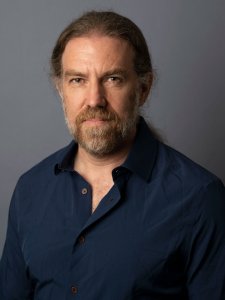Presented By: Electrical and Computer Engineering
A Guessing Random Additive Noise Decoding (GRAND) Introduction
Ken R. Duffy Professor and Interim Chair, Department of Electrical & Computer Engineering, Professor, Department of Mathematics Northeastern University

In 1948, Claude Shannon, an alumni of the University of Michigan, published an opus that changed the world. Amongst many other things, he identified the minimum amount of redundancy that needs to be added to a communication to enable reliable decoding on reception. Since then, the paradigm has been to co-design cleverly restricted classes of mathematically precise grammars called codes with code-specific correction algorithms called decoders.
In this talk, we introduce Guessing Random Additive Noise Decoding (GRAND), class of error correction decoders based on a readily understood paradigm that makes them suitable for use with any moderate redundancy code of any length. Even though the first mathematical analysis was only published in 2018, GRAND has already resulted in taped-out chips that demonstrate its class-leading efficiency in silicon. In this talk, we explain the theoretical insight behind GRAND as well as recent developments that demonstrate its ability to decode long low-rate codes more accurately and efficiently than those in widely used standards.
The work is based on a collaboration with Muriel Medard (MIT), with the circuits elements performed in collaboration with Rabia Yazicigil (BU), as well as their groups.
Bio
Ken R. Duffy is a Professor at Northeastern University with a joint appointment in the Department of Electrical & Computer Engineering, where he currently serves as Interim Chair, and the Department of Mathematics. He was previously a Professor at Maynooth University in Ireland where he was the Director of the Hamilton Institute, an interdisciplinary applied mathematics research centre, from 2016 to 2022. He was one of three co-Directors of the Science Foundation Ireland Centre for Research Training in Foundations of Data Science, which funded more than 120 PhD students.
He obtained a Ph.D. in probability theory in 2000 from Trinity College Dublin under the supervision of the late John T. Lewis. He works in works collaborative multi-disciplinary teams to design, analyse and realise algorithms using tools from probability, statistics, and machine learning. Algorithms he has developed have been implemented in digital circuits and in DNA. He is a co-founder of the Royal Statistical Society’s Applied Probability Section (2011), co-authored a cover article of Trends in Cell Biology (2012), is a winner of a best paper award at the IEEE International Conference on Communications (2015), the best paper award from IEEE Transactions on Network Science and Engineering (2019), the best research demo award from COMSNETS (2022), and the best demo award from COMSNETS (2023).
In this talk, we introduce Guessing Random Additive Noise Decoding (GRAND), class of error correction decoders based on a readily understood paradigm that makes them suitable for use with any moderate redundancy code of any length. Even though the first mathematical analysis was only published in 2018, GRAND has already resulted in taped-out chips that demonstrate its class-leading efficiency in silicon. In this talk, we explain the theoretical insight behind GRAND as well as recent developments that demonstrate its ability to decode long low-rate codes more accurately and efficiently than those in widely used standards.
The work is based on a collaboration with Muriel Medard (MIT), with the circuits elements performed in collaboration with Rabia Yazicigil (BU), as well as their groups.
Bio
Ken R. Duffy is a Professor at Northeastern University with a joint appointment in the Department of Electrical & Computer Engineering, where he currently serves as Interim Chair, and the Department of Mathematics. He was previously a Professor at Maynooth University in Ireland where he was the Director of the Hamilton Institute, an interdisciplinary applied mathematics research centre, from 2016 to 2022. He was one of three co-Directors of the Science Foundation Ireland Centre for Research Training in Foundations of Data Science, which funded more than 120 PhD students.
He obtained a Ph.D. in probability theory in 2000 from Trinity College Dublin under the supervision of the late John T. Lewis. He works in works collaborative multi-disciplinary teams to design, analyse and realise algorithms using tools from probability, statistics, and machine learning. Algorithms he has developed have been implemented in digital circuits and in DNA. He is a co-founder of the Royal Statistical Society’s Applied Probability Section (2011), co-authored a cover article of Trends in Cell Biology (2012), is a winner of a best paper award at the IEEE International Conference on Communications (2015), the best paper award from IEEE Transactions on Network Science and Engineering (2019), the best research demo award from COMSNETS (2022), and the best demo award from COMSNETS (2023).